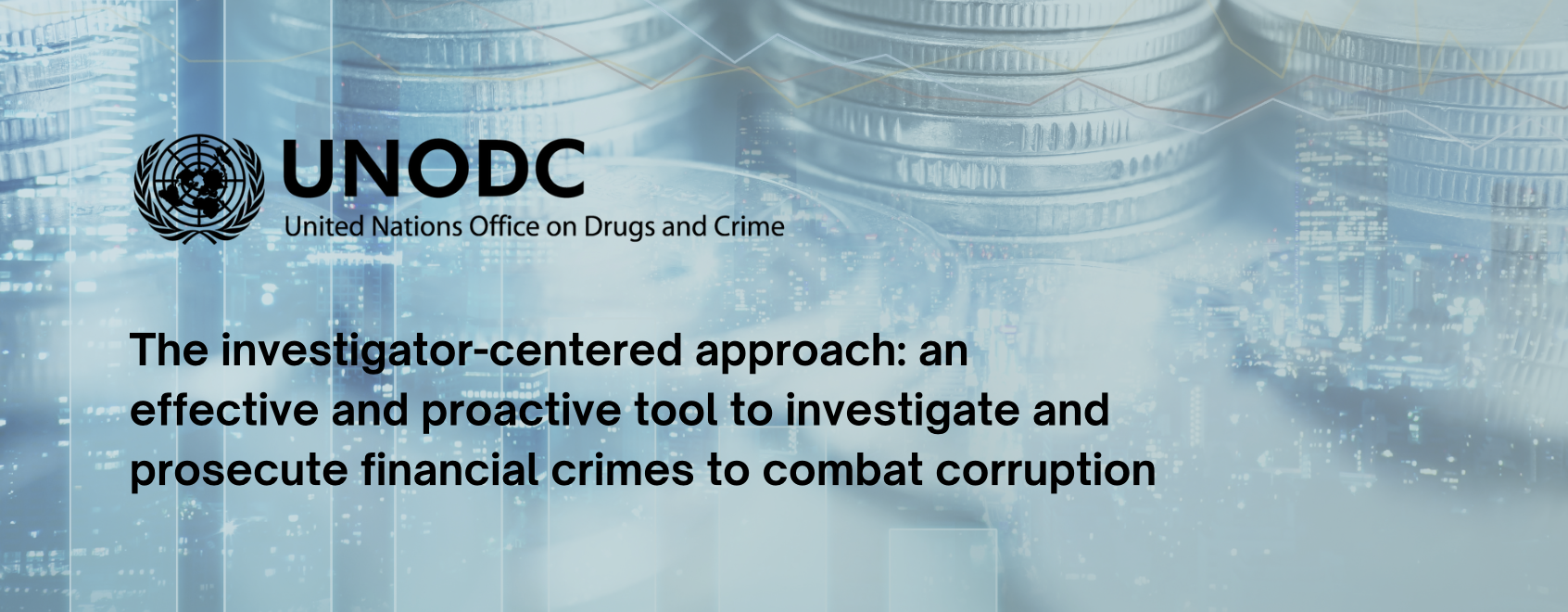
November 13 to 15, 2023 Kyiv Ukraine – At the request of and in consultation with the Ukrainian National Anti-Corruption Bureau (NABU) and in collaboration with the UNODC Corruption and Economic Crime Section, UNODC in Ukraine organized the workshop on ‘Financial Investigations for the Effective Detection of Corruption and Tracing of Proceeds of Crime’ which brought together 28 detectives and analysts from NABU. The aim was to strengthen Ukraine's financial investigation capabilities, an essential tool in the effective fight against corruption.
The economic and financial spheres offer clear advantages for criminals to exploit and launder illicit funds and proceeds of crime. On financial investigation, one of the crucial ways UNODC supports member states to combat corruption is by enhancing institutional frameworks and developing skills and capacities of anti-corruption practitioners.
During the 3-day workshop, UNODC experts trained Ukrainian officers to strengthen their investigative response through preventive and proactive investigative methods, sharing practical experience and good practice, including through an overview of case scenarios, among officials involved in the investigation and prosecution of financial crimes and corruption in Ukraine.
The workshop focused on a combination of investigative methods and approaches that can effectively lead to successful financial investigations through the collection of new prosecutable evidence, the resolution of complex corruption cases involving money laundering, and the effective cooperation and exchange of information between competent authorities, in particular law enforcement agencies such as the Ukrainian National Anti-Corruption Bureau (NABU) and the Specialized Anti-Corruption Prosecutor's Office (SAPO).

Through investigative case studies designed for the workshop, UNODC experts supported NABU investigators in the process of developing and revising financial investigation plans through the collection of prosecutable evidence, the mapping of criminal networks and their transnational ramifications, promoting the use of technology for financial investigations, in particular SWIFT (Society of Worldwide Interbank Financial Telecommunications) analysis.
During the workshop practitioners discussed the importance of adopting techniques authorized by law and ensuring that all legal requirements, policies and procedures are complied with, and to cooperate with a wide range of law enforcement actors and other national agencies such as tax authorities, customs, etc., in order to achieve the best possible results.
1. Tracing and Processing Proceeds of Crime
2. Detection of Illicit Funds & SWIFT Analysis
3. Money Laundering and Related Offences
4. Forensic Accounting Methodologies
5. Charting Financial Evidence
6. Interviewing Witnesses and Suspects for Financial Crime
7. Use of Technology in Securing Financial Evidence
It is essential to support the integration of financial investigations and criminal financial analysis as a law enforcement technique, and to standardize their use during criminal investigations and throughout preventive and proactive actions focused on financial crime, the detection of money laundering, corruption and terrorist financing, as well as other serious crimes.
Participants highlighted the key areas in which they had gained new and useful knowledge for investigating illicit financial flows, including the potential for a more proactive approach, the ability to cross-analyze information, the effective use of available investigative methods, and operational networking with other national agencies. Based on the results of the workshop, participants also identified thematic areas where NABU will require further technical assistance.


Further Information
Legal Instruments:
The Vienna Convention, the Palermo Convention, the FATF Forty Recommendations
United Nations General Assembly Resolutions 74/177 (2019), 73/186 (2018), 72/196 (2017), and 71/209 (2016)
Conference of the States Parties to the United Nations Convention against Corruption Resolution 9/1 ‘Sharm el-Sheikh declaration’ on strengthening international cooperation in the prevention of and fight against corruption during times of emergencies and crisis response and recovery.
SDGs:
Member States are called upon by 2030 to significantly reduce illicit financial flows, strengthen recovery and return of stolen assets, and combat all forms of organized crime (SDG target 16.4). Organized crime and illicit financial flows erode sustainable development outcomes and undermine the rule of law.
Follow @UNODC
The Conference of States Parties to the United Nations Convention against Corruption (UNCAC) will take place between 11-15 December. In this framework, the UNODC Global Programme against Money Laundering will organize two hybrid special events. For the full agenda click here.